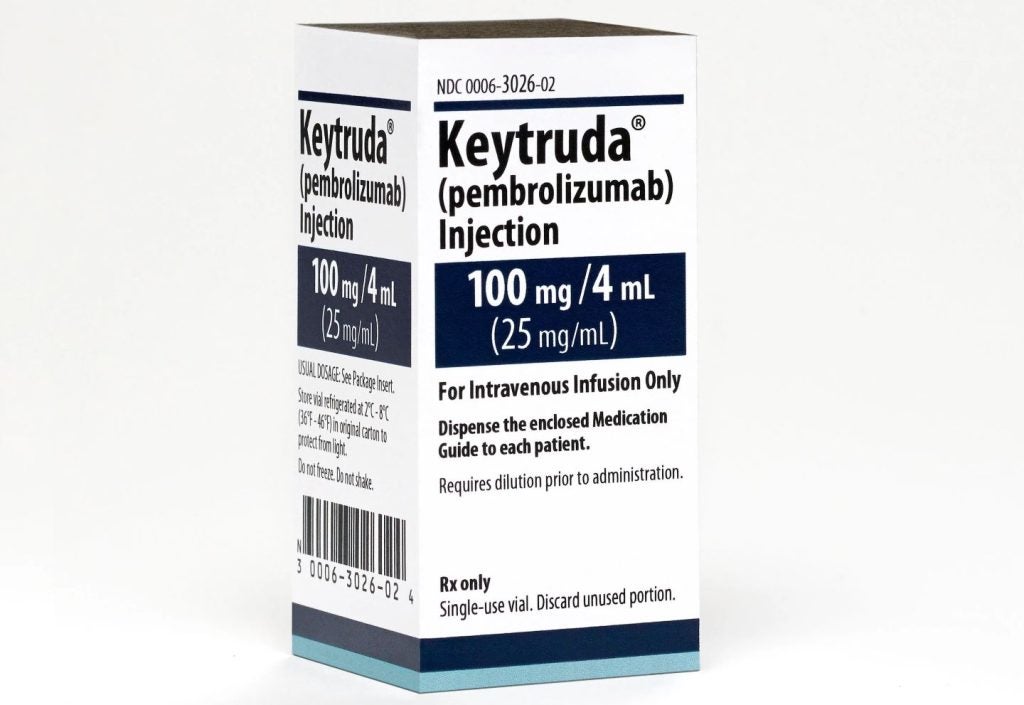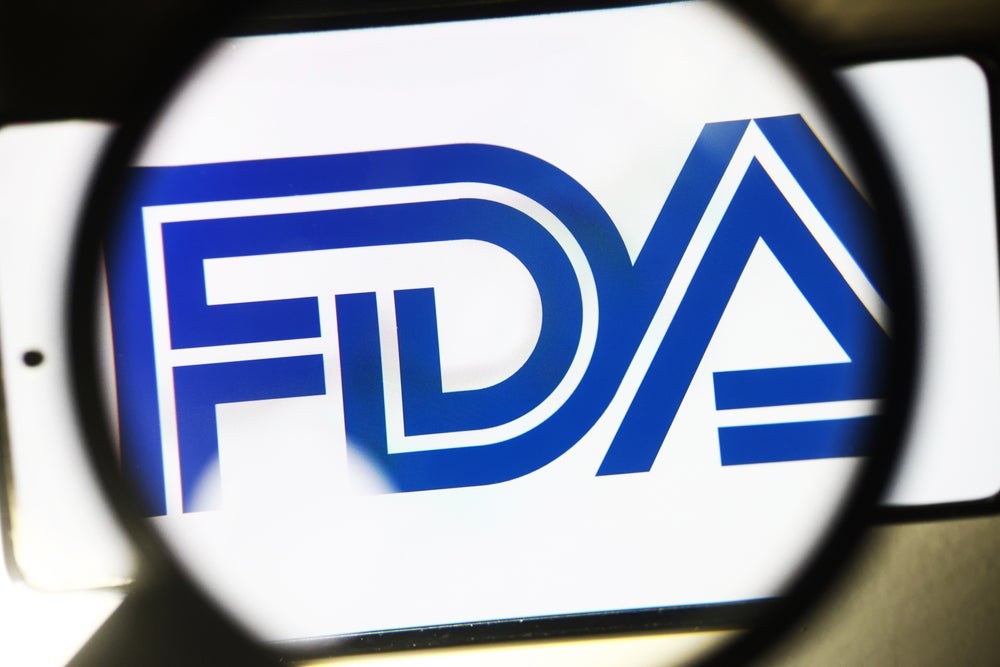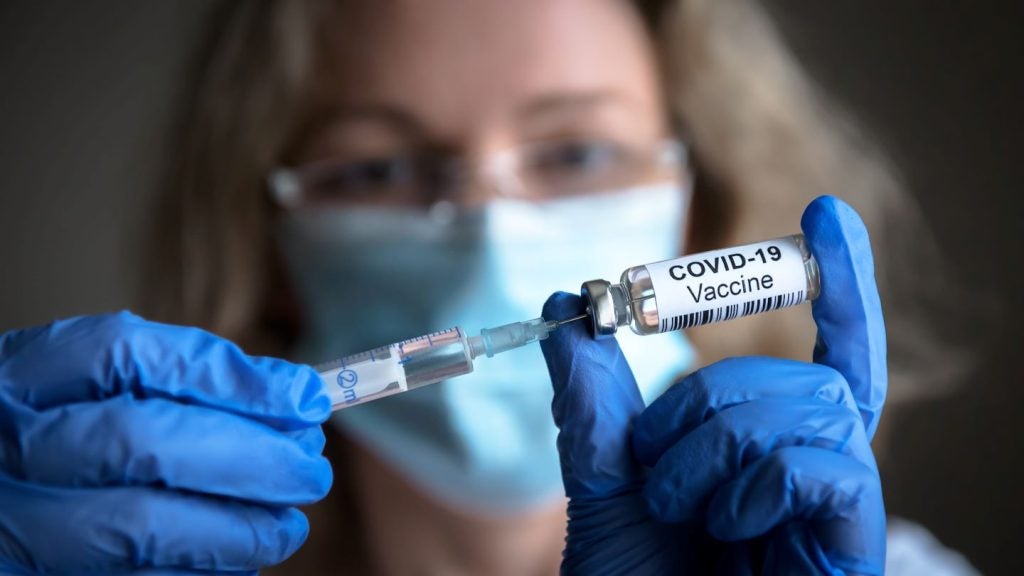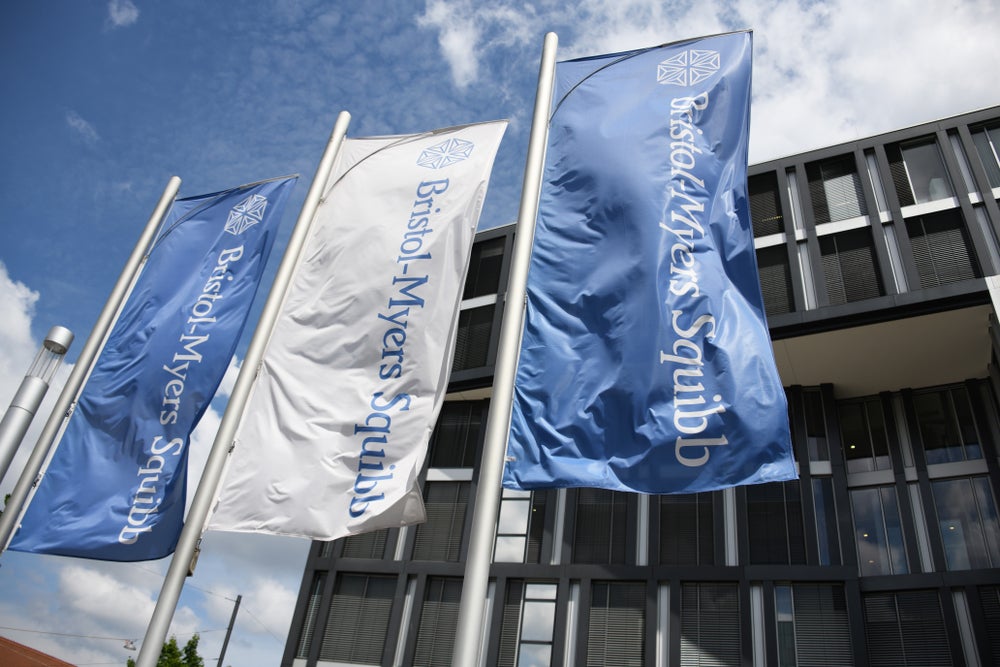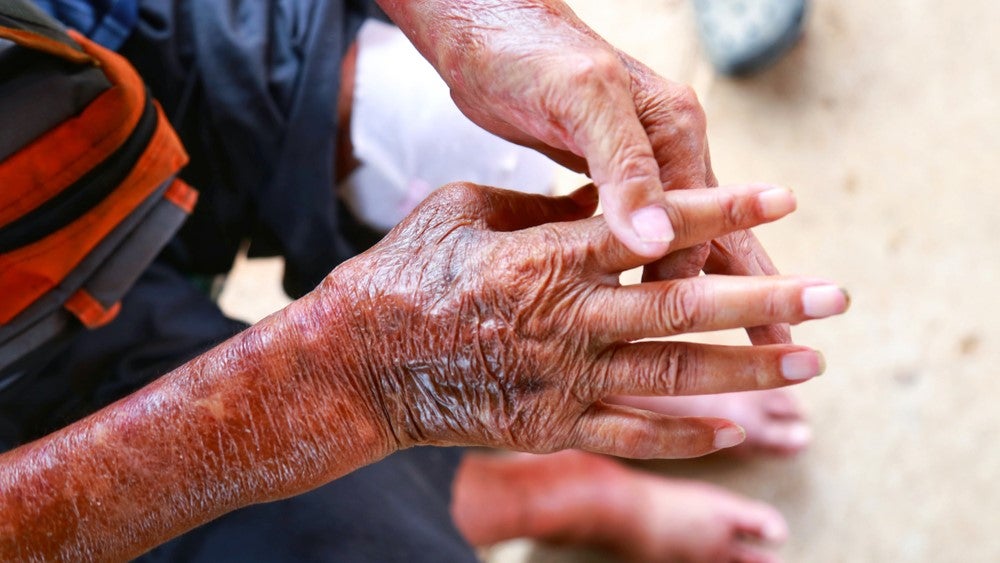The US Food and Drug Administration (FDA) has granted approval for Merck’s (MSD) Keytruda (pembrolizumab) plus chemotherapy as a first-line treatment for adult gastric cancer patients.
The combination treatment is approved for people with locally advanced unresectable or metastatic human epidermal growth factor receptor 2 (HER2)-negative gastric or gastroesophageal junction (GEJ) adenocarcinoma.
The latest development is based on findings from the double-blind, randomised, multicentre, placebo-controlled Phase III KEYNOTE-859 clinical trial of Keytruda along with chemotherapy containing fluoropyrimidine and platinum.
Trial data showed that the combination treatment reduced mortality risk by 22% versus chemotherapy alone.
Median overall survival was 12.9 months in the Keytruda plus chemotherapy arm compared to 11.5 months for the chemotherapy arm alone.
An anti-programmed death receptor-1 treatment, Keytruda acts by enhancing the immune system’s potential to identify and kill tumour cells.
The latest FDA approval is the 38th indication for Keytruda alone and the seventh indication in gastrointestinal cancer for Keytruda-based regimens in the region.
Merck Research Laboratories global clinical development late-stage oncology senior vice-president and head Dr Marjorie Green stated: “At Merck, we have a comprehensive development programme across a broad range of gastrointestinal cancers with the goal of providing meaningful new options to patients and their healthcare providers.
“This latest approval of a Keytruda-based treatment option is an important milestone for patients with advanced HER2-negative gastric or GEJ adenocarcinoma and re-inforces Merck’s commitment to addressing the needs of these patients in the US.”
The Committee for Medicinal Products for Human Use of the European Medicines Agency had previously provided a positive opinion to approve MSD’s Keytruda combination therapy for biliary tract cancer.


